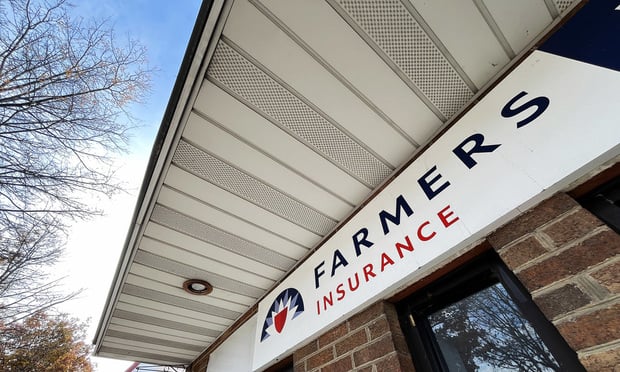At times, temporary housing arrangements for homeowners' claims can leave many adjusters wondering if they could have found a better solution for their policyholders' additional living expense (ALE) needs. For instance, consider the following scenario.
An adjuster estimates the repair time of a loss to be 45 days and has a family of four make arrangements to stay in a local extended stay hotel. Before she knows it, the six weeks have gone by and the contractor is telling her that he needs at least another six weeks. The hotel bill for the family already is around $5,400 and if they stay in the hotel another six weeks, the adjuster will have paid roughly $10,800 for three months of temporary housing. This figure does not account for taxes on the hotel room, mileage, meals, pet boarding, and other incidental receipts the policyholder likely will turn in as incurred costs as a result of the loss. She wonders if she could have done anything differently to cut down on these expenses.
Meanwhile, the policyholder is calling about his concerns related to the family being out of their home. The small space of the hotel is wearing on them and everyone's ability to move forward with the claim is being affected.
Extending Your Options
Sound familiar? This is just one of many situations an adjuster might encounter when overseeing the ALE portion of a claim. However, it is important to consider how the specifics of a claim can make a difference in deciding which avenue is best to take when it comes to arranging temporary housing.
To effectively determine which route is best, it is paramount to pinpoint how long the policyholder will be displaced. While there are potential pitfalls and delays associated with every claim that make an accurate prediction almost impossible, narrowing the margin of error can reduce the overall cost of the temporary housing arrangement. In addition, it will help the adjuster — and, if involved, the temporary housing provider — choose the best and most appropriate option.
In many cases, extended stay hotels can be a great option for displaced policyholders. If a family will be out of their home for a short period of time — anywhere from a few days up to six weeks — keep this type of hotel in mind because of the options they offer. Many provide kitchenettes, are pet friendly, and some are willing to direct bill the insurance company. Negotiated rates also may be available for stays of this length. If an adjuster is confident that the amount of time the family will be displaced will be less than six weeks, choosing an extended stay hotel makes sense.
They are not necessarily the best choice, however, when the length of time exceeds six weeks. The costs can add up quickly and overall policyholder satisfaction often begins to plummet. The walls of the two-bedroom suite may begin to close in on a family after a few weeks in a hotel, which can add more stress to the insured's already heightened emotional state.
As the hotel stay lengthens, the policyholder might express interest in other temporary solutions, such as renting a house. As an adjuster, it is important to encourage claimants to be selective when options are provided. When policyholders are anxious to get into a home, they often will take the first one that is offered even though it may not suit all of their needs. This frequently results in another move, which can increase stress and overall cost. Patience and excellent lines of communication between all parties are keys to a successful relocation.
Family Is Great, But…
Sometimes policyholders will opt to make other arrangements for housing by staying with family or friends. For those lucky enough, they may use a vacation or second home. In these rare cases, if the policy allows for it, adjusters may cash out the policyholder for an amount deemed to be fair by both parties. This may seem like an easy solution for everyone and works well for relocations that are planned to last no longer than a month.
For lengthier relocations of this type, though, it doesn't always work; everyone may want their own space after a few weeks. An insured may call an adjuster to see if there are any other options available to them after spending a significant amount of time at the home of a relative or friend. Living out of a suitcase and comfort zone may hinder a policyholder from moving forward with other portions of the claim. It may take them longer to get their list of home contents together or turn in their receipts. Decisions about structural repairs could be delayed.
Corporate housing providers may be available for temporary housing in some areas. Usually, a corporate housing company has fully furnished properties for executive or corporate relocations related to business or business travel. Often, these properties are in densely populated areas and usually consist of apartments, condominiums, or town homes. Some may offer more customized accommodations or even single-family homes.
These properties are convenient because they come fully furnished; however, there may be less flexibility in terms of proximity to the insured's residence, work place, or school. Also, a corporate housing company may be experienced when it comes to handling corporate relocations involving executives, but it may not be used to working with insurance-related relocations that often involve larger families. Short-term leases usually are available, but keep in mind that the shorter the term, the more the monthly cost may be, a caveat that also holds true for insurance relocation providers.
Adjusters also may find themselves paying for utilities and housekeeping services with corporate housing providers, fees that do not always meet the definition of incurred costs as it relates to ALE coverage. For instance, a policyholder would still be responsible for their utilities had the loss not occurred.
Use Your Resources
Another option for adjusters is insurance relocation providers, who specifically focus on relocations within the insurance industry. They work for both the adjuster and insured throughout the life of the claim by taking over the ALE portion. This includes locating rental options that are close to the policyholder's existing address, which helps the family keep up their normal routine as much as possible. They also negotiate lease terms to correspond with the amount of time the family will be displaced.
Legitimate providers will work with adjusters to understand the parameters of the insurance policy and will focus on finding homes that are comparable to the loss property. Usually these providers can facilitate or refer hotel stays for short-term relocations. They also may have a one or two month minimum when it comes to providing rental properties.
Most can supply rental contents items such as furnishings, housewares, and appliances. Many families are not ready to replace these items until they move back to their home. Often, it makes sense to use rental furnishings and housewares because of the cost and risk involved with repeatedly moving the replaced items. Providers also can facilitate or refer mobile housing options, such as travel trailers, if a mobile option makes more sense. Since insurance relocation providers differ in many ways, adjusters should ask companies about these services and their associated costs before deciding (see sidebar “Ask and Receive” at end of article).
Taking the Right Approach
Given the number of options adjusters have when it comes to temporary housing, how can they best match their decisions to the needs of their insureds? In addition to giving careful consideration to repair timelines, adjusters should think carefully about the specific situation of the insured. Is he a single person who needs temporary accommodations or are there several family members who will be relocating? Are any pets involved? Do they do a lot of driving for work and school? What about errands and extracurricular activities? Are there any special needs to consider, such as a family member who is handicapped? Do the policyholders live in a remote area? The answers to these questions can best help an adjuster and a policyholder determine what makes the most sense for their relocation situation.
Corporate housing near an insured's place of work might work better for a couple, while an insurance relocation provider may be able to find something right down the street that is more appropriate for a larger family. An extended stay hotel for three weeks might make the most sense for a water loss, while a rental property for six months for a severe fire loss may be more cost effective and policyholder friendly.
Because arranging temporary housing is not an exact science, it may be a good idea to contact a housing provider and speak to an experienced housing coordinator who can help make assessments about the appropriate course of action. Many temporary housing providers in the industry, especially those well versed in the insurance niche, will offer this guidance. Having quality resources available and asking the right questions can lead to cost and time effective temporary housing solutions as well as greater policyholder and adjuster satisfaction.
Jenna Jahn is a territory manager for DMA Insurance Housing Assistants. She is based in Denver, Colo., and can be reached at (800) 550-1911, [email protected].
Want to continue reading?
Become a Free PropertyCasualty360 Digital Reader
Your access to unlimited PropertyCasualty360 content isn’t changing.
Once you are an ALM digital member, you’ll receive:
- Breaking insurance news and analysis, on-site and via our newsletters and custom alerts
- Weekly Insurance Speak podcast featuring exclusive interviews with industry leaders
- Educational webcasts, white papers, and ebooks from industry thought leaders
- Critical converage of the employee benefits and financial advisory markets on our other ALM sites, BenefitsPRO and ThinkAdvisor
Already have an account? Sign In Now
© 2024 ALM Global, LLC, All Rights Reserved. Request academic re-use from www.copyright.com. All other uses, submit a request to [email protected]. For more information visit Asset & Logo Licensing.








